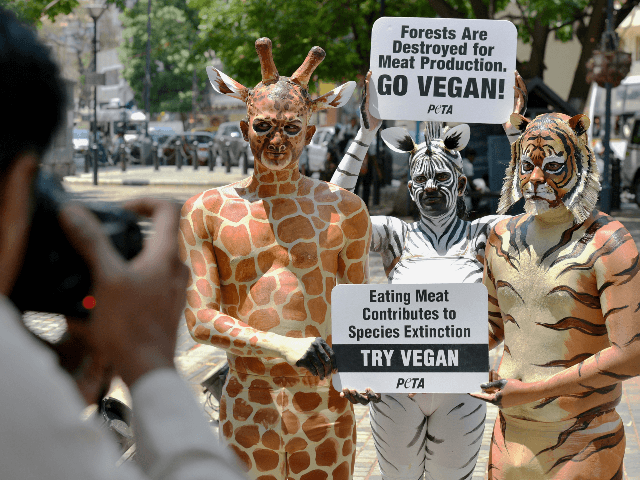An Oxford University study has found that vegans are 43 per cent more likely to suffer a bone fracture than meat-eaters.
The research, published in BMC Medicine on Monday, followed some 55,000 meat-eaters, vegetarians, pescatarians (who eat fish), and vegans (who consume no animal products at all) for around 18 years each, on average.
According to The Times, while vegetarians and pescatarians were 25 per cent more likely to suffer broken hips than meat-eaters, vegans were more than 2.3 times likely to experience the injury.
Oxford University’s Tammy Tong, who is the lead author of the piece, said that it was a result of vegans having a lower intake of calcium and protein. She said: “We found that vegans had a higher risk of total fractures, which resulted in close to 20 more cases per 1,000 people over a ten-year period compared to people who ate meat.”
Earlier this month, a study by the Federal Institute for Risk Assessment (BfR) in Berlin, Germany, found that one-third of vegans assessed had a “markedly lower” amount of iodine, at levels that the World Health Organization (WHO) would consider a “severe deficiency”.
While a study from December 2019 from Utrecht University in the Netherlands claimed that vegans suffer worse hangovers than meat-eaters due to a lack of B3 and zinc in their diets, both of which are required to digest alcohol.
Research presented at a farmers’ union meeting in February also suggested that the production of non-meat foodstuffs like tofu may be worse for the environment, and not as healthy for individuals to consume.
The Rothamsted Institute’s Graham McAuliffe had said at the National Farmers Union meeting in London: “Without a doubt peas and ground nuts always have a lower environmental impact than any livestock products.
“But if you look at tofu, which is processed so there is more energy going into its production, when you correct for the fact that the protein in it is not as digestible compared to the meat-based products, you can see that it could actually have a higher global warming potential than any of the monogastric animals.
“To get the same amount of protein, tofu is worse.”
Vegan activists have sought to tax meat consumption. They have also campaigned to make being a vegan a ‘protected characteristic’, such as race, sex, sexual preference, religion, or age, and that vegans should have a legally mandated right to be protected against perceived discrimination in the workplace.
In March, an “ethical vegan” won a landmark case of discrimination against his employer. Earlier this year, the judge in the case had determined that ethnical veganism was a “philosophical belief”, suggesting it warranted protection under British discrimination laws.

COMMENTS
Please let us know if you're having issues with commenting.